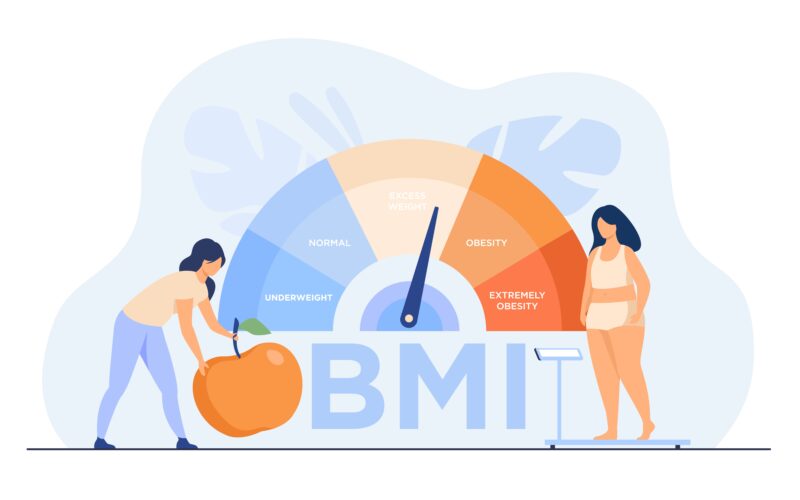Importance
BMI Calculator: Decode Your Health: BMI, or Body Mass Index, is a vital tool for doctors because it helps them determine if a person’s weight is in a healthy range for their height. It’s like a measuring stick for the body. By calculating a patient’s BMI, doctors can quickly identify if someone is underweight, normal weight, overweight, or obese, which can provide important insights into potential health risks. This information is valuable for early detection of conditions like heart disease, diabetes, and high blood pressure that can be linked to weight. It allows doctors to develop personalized advice and treatment plans, such as recommending healthier eating habits or exercise routines, tailored to each patient’s needs.

Table of Contents

Refer to the following table to interpret your BMI and determine where you fall:
BMI Categories
| BMI | Category |
|---|---|
| Less than 18.5 | Underweight |
| 18.5 – 24.9 | Normal weight |
| 25 – 29.9 | Overweight |
| 30 or greater | Obese |
Your BMI category provides a general indication of your health status concerning your weight. However, it’s essential to remember that BMI is just one part of the health puzzle.
What is BMI?
BMI, or Body Mass Index, is a widely-used tool that assesses whether an individual’s weight falls within a healthy range relative to their height. It’s a helpful indicator of potential health risks associated with being underweight, overweight, or obese. Calculating your BMI is the first step toward understanding your health better.
Underweight (BMI less than 18.5):
Consult a Healthcare Professional: If you’re underweight, it’s crucial to consult with a healthcare provider to determine the underlying causes and potential health risks.
Nutrition: Focus on a balanced diet that includes a variety of nutrient-rich foods. Consider increasing your calorie intake to reach a healthy weight.
Exercise: Incorporate strength training exercises to build muscle mass and improve overall fitness.
Monitor Progress: Keep track of your weight gain progress and consult with your healthcare provider regularly.
Normal Weight (BMI 18.5 – 24.9):
Maintain a Balanced Diet: Continue to eat a well-balanced diet to support overall health.
Regular Exercise: Engage in regular physical activity to maintain your current weight and promote good health.
Lifestyle: Focus on other aspects of health, such as staying physically active, managing stress, and getting regular check-ups.
Overweight (BMI 25 – 29.9):
Healthy Eating: Adopt a balanced and calorie-controlled diet that includes plenty of fruits, vegetables, lean proteins, and whole grains.
Regular Exercise: Increase physical activity to aid in weight loss. Aim for a combination of cardio and strength training exercises.
Portion Control: Be mindful of portion sizes to prevent overeating.
Consult a Dietitian: Consider consulting a registered dietitian or nutritionist for personalized dietary guidance.
Obese (BMI 30 or greater):
Medical Evaluation: Seek medical evaluation and guidance to address potential health risks associated with obesity.
Dietary Changes: Make significant dietary changes, focusing on reducing calorie intake and choosing nutrient-dense foods.Regular Exercise: Engage in regular physical activity to promote weight loss and improve overall health.
Behavioral Changes: Consider behavioral therapy or counseling to address eating habits and emotional factors.
Medical Interventions: In some cases, medical interventions such as medication or weight loss surgery may be recommended under the guidance of a healthcare professional.
Conclusion (BMI Calculator: Decode Your Health)
It’s important to remember that individual circumstances vary, and what works best for one person may not work for another. Consultation with a healthcare provider or registered dietitian is often the best approach to address weight-related concerns and develop a personalized plan for achieving and maintaining a healthy weight. Additionally, focus on making sustainable lifestyle changes rather than pursuing quick fixes.

